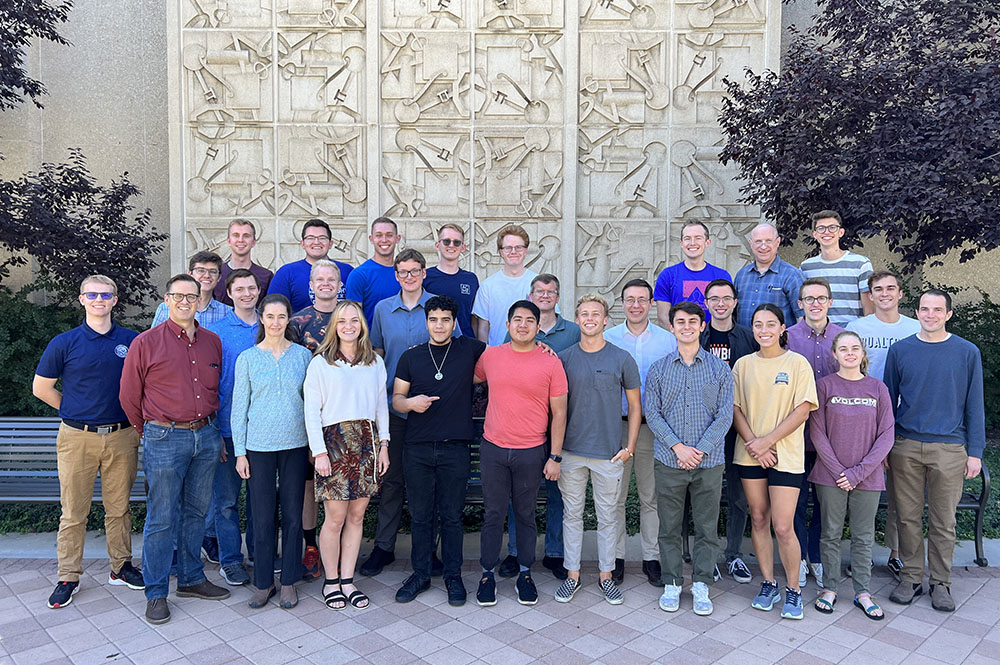
Over the last ten years, BYU’s Applied and Computational Mathematics Emphasis (ACME) has continued to grow and garner recognition for their achievements each year.
In October 2023, The American Mathematical Society (AMS) announced BYU’s program as their 2024 Exemplary Program recipient.
According to the society’s website, the recognition started in 2004 and the first award was given in 2006. The award “recognizes a department which has distinguished itself by undertaking an unusual or particularly effective program of value to the mathematics community, internally or in relation to the rest of society.”
The ACME program helps students apply math and computer science in new ways, according to Paul Jenkins, a professor in the program.
“When we started the ACME program we wanted to give better opportunities to our students, to provide an education in applied mathematics that’s much more modern,” Jenkins said.
Tyler Jarvis, the director of the ACME program, said the major is a combination of applied and computational math utilizing aspects of both a math and computer science major as students learn both subjects concurrently.
“I don’t think any other undergraduate program in the country is doing something like what we do,” Jarvis said.
The recognition has helped highlight the hard work and exceptional talent of the students coming out of BYU’s program, Jarvis said.
“Our mission at BYU is to help students. And so it’s nice that we’re being recognized as being successful with that,” Jarvis said.
Emily Evans, a professor in the program, said she believes the combination of more traditional and modern applied math into one program made BYU stand out compared to other universities.
“They’re also realizing that we were sort of visionary in this combination of traditional and modern applied math,” Evans said.
The award helped Evans appreciate the hard work of creating a new curriculum for students to help prepare them for a more diverse workforce, she said.
“The whole sort of thing that’s great for us as a department is realizing that we can really invent something from scratch and be honored for that,” Evans said.
Over the last ten years, the ACME program has continued to grow. According to Jenkins, about two thirds of mathematics majors are in the ACME program.
“The first graduating class had about 15 students who completed their degrees that year and in the last few years, we’ve had about 60 a year who are completing the senior core,” Jenkins said. “So it’s been tremendous growth.”
The ACME program provides students a variety of opportunities to apply math in their future careers.
“They get a lot of practice in attacking new problems and learning new things, and they’re very well prepared in the workforce,” Jenkins said.
The success of the program comes from the unique approach to applied math as well as the unified cohort who take all of their junior and senior level classes together, Jarvis said.
The cohorts help provide social, emotional and academic support for students, encourage teamwork and build loyal alumni, according to the AMS website.
“They really have this strong, tight-knit community that supports each other. I haven’t seen that in any other university in a math program,” Jarvis said.
Although the award will provide more recognition for the ACME program, Jarvis said the approach to the program will stay the same.
“It won’t really fundamentally change what we’re doing because we’ve got faculty who’ve got a vision of helping the students be successful and that doesn’t change by getting a recognition,” Jarvis said.
The recognition has helped provide the motivation to do more and continue to find new ways to help the students succeed, Evans said.
BYU hopes other universities will adopt the ACME program in coming years as they continue to see the impact of the program, Jenkins said.




